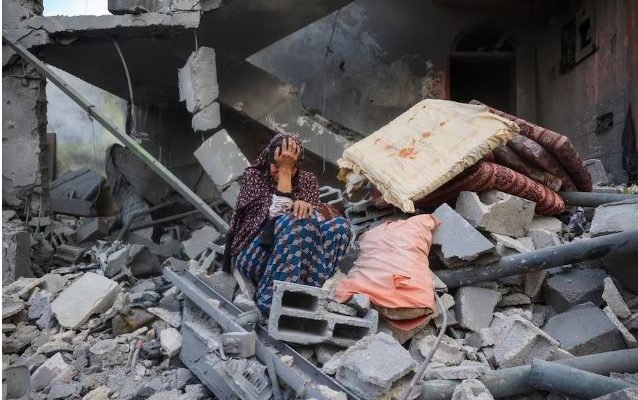After negotiations for Phase 2 of Israel and Hamas’s ceasefire deal failed to materialize, Israel said the strikes were necessary to free remaining hostages.
Israeli forces launched large-scale airstrikes on the Gaza Strip early Tuesday, breaking the fragile ceasefire agreement brokered with Hamas in January and threatening to reignite the conflict into full-blown war after nearly two months of relative respite.
While Israel floated proposals to extend the initial phase, Hamas wanted to open talks for the second phase — arguing that it needed longer-term commitments to ending hostilities.
Amid growing pressure from the Trump administration for Israel and Hamas to agree to an extension, Hamas offered last week to release Edan Alexander, an American–Israeli dual national and Israeli soldier, to start a 50-day extension of the first phase, a Hamas official told The Washington Post. In return, Hamas wanted negotiations over the second phase.
What is Israel’s reason for resuming airstrikes?
In a statement Tuesday, the Israeli prime minister’s office said it began airstrikes because Hamas had rejected its mediation proposals and refused to release the remaining Israeli hostages.
Of the 251 people taken hostage during the 2023 Hamas attack on Israel, 24 — all adult men — are believed to still be alive in Gaza, in addition to the bodies of 34 hostages whose deaths Israel has confirmed.
Israeli Foreign Minister Gideon Saar argued that the resumption of attacks was the only way to return the hostages. “In the past two and a half weeks, we found ourselves at a dead end — with no fire and no return of hostages — and that’s something Israel cannot accept,” he said, insisting that Israel had made genuine efforts to negotiate a framework. “Had we continued to wait, the situation would have remained stuck,” he said.
The Israeli military also issued evacuation orders for neighborhoods in the Gaza Strip that run alongside its border.
Two Israeli officials, speaking on the condition of anonymity because they were not authorized to discuss the matter publicly, told The Post that Tuesday’s strikes are largely a negotiation tactic to force Hamas to soften its demands after weeks of stalled talks.
The other official said Israel has prepared options including a renewed ground assault, depending on the progress of the negotiations and the threat posed by Hamas.
What has Hamas done in response?
There were no immediate signs of the militant group retaliating against the Israeli strikes. No sirens sounded in Israel on Tuesday morning.
Hamas also accused the United States of complicity in Israel’s attacks — and suggested that Washington’s prior knowledge of the strikes undercut its ability to act as a neutral arbiter in negotiations. “The U.S. administration’s admission that it was informed in advance of the Zionist aggression … reveals America’s blatant complicity and bias with the occupation,” it read.
What has the reaction been?
Aid organizations condemned the resumption of violence and expressed fears for the safety of Gazans, while some Israeli groups have accused their government of endangering the hostages in Gaza with the resumption of bombing.
Muhannad Hadi, U.N. humanitarian coordinator for the Palestinian territories, described the Israeli airstrikes as “unconscionable” on Tuesday. “A ceasefire must be reinstated immediately,” he added. “People in Gaza have endured unimaginable suffering.”
At the same time, the United States has voiced its support for Israel. On Hannity’s show, Leavitt said that “all those who seek to terrorize not just Israel, but also the United States of America, will see a price to pay. All hell will break loose.”


